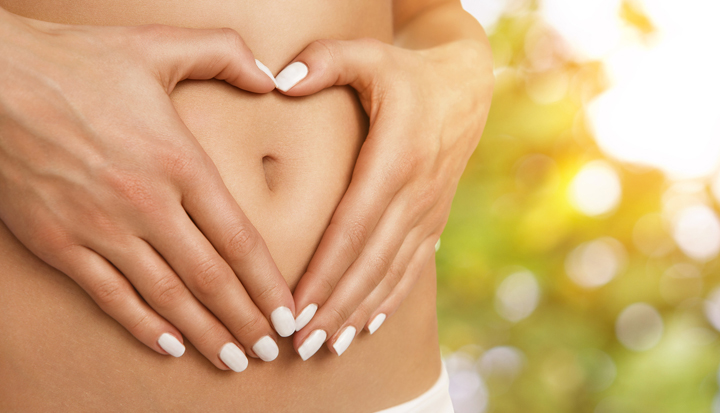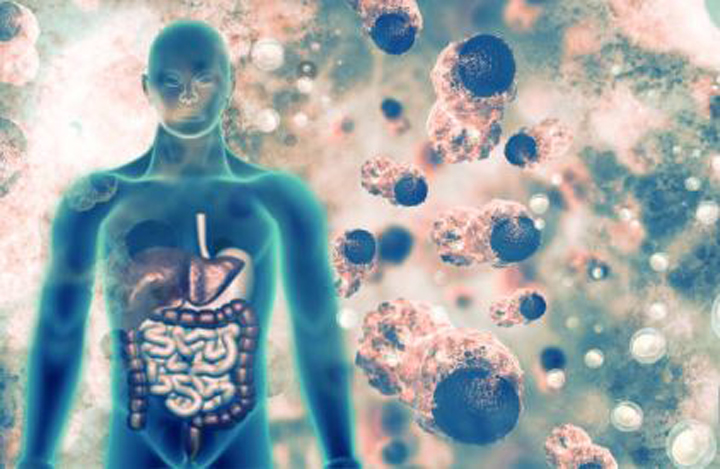
The microbiome helps your body to respond appropriately to infection. As a result, allergies, asthma, food intolerances and autoimmune disease are kept in check.

The health of your gut impacts on other body systems such as the liver, kidneys, skin and lymphatic system which are all involved in removing waste products and toxins from the body.

How to buy a Body Ballancer®
Find Out moreHow to balance your microbiome
Guest blog by Ruth Flett of Nutrition Mind Body Balance
Your microbiome supports your body to function well and be healthy. However, there are many things that influence it. You may not be nurturing yours as well as you could be. Read on to find out ways to balance your microbiome and encourage it to be body friendly.
What exactly is the microbiome?
The microbiome includes the microorganisms that live on your skin and inside your body cavities. Each of us has a unique microbiome inherited at birth and impacted by environmental exposure. Our gut makes up a huge part of this. If your microbiome is out of balance your body will feel weak, become inflamed and tired . As a result your energy will plummet and you may even get ill.
The functions of your microbiome include:
- A friendly microbiome helps to digest your food, obtaining energy from it that your body cannot digest. If you don’t have these microorganisms then this source of energy will be eliminatedby your body, undigested.
- The bugs in your gut work with the cells in your body to keep your blood sugar stable. This helps to smooth over those energy highs and lows, keeping your energy levels more balanced.
- Your microbiome can decide whether you store excess fat, or not. This partly explains why some of us struggle to loose weight even when we are all doing the right things. It may also explain why people have a range of appetites, because the fewer nutrients obtained from food, the more the need to eat.
- The microbiome provides us with vitamins that our bodies cannot make, or need help to do so e.g B vitamins and vitamin K.
- The bacteria in the gut produce chemicals that maintain mood. Two examples are Glutamate which helps you to think, connect ideas and remember; Serotonin helps you to feel good.
- The microbiome helps your body to respond appropriately to infection. As a result, allergies, asthma, food intolerances and autoimmune disease are kept in check.
- Beneficial gut bacteria help to reduce the inflammation in your body because they produce short chain fatty acids, which protect the gut lining. This also prevents toxins and chemicals entering the body. In addition, some gut bacteria secrete lactic acid, which helps to kill off any bad bacteria present.
- The microbiome is important in managing stress. The more varied the types of organisms present, the better your body manages this stress.
So, as you can see there are many good reasons to balance your microbiome!
The health of your gut impacts on other body systems too, such as the liver, kidneys, skin and lymphatic system. These are all involved in removing waste products and toxins from the body. However, there are ways to eat and live that reduce the toxins and waste products that your body produces, lightening the load for your body and helping you balance your microbiome.
How to influence and balance your microbiome
- Eat a healing, low inflammatory diet.
- Exercise to keep the circulatory and lymphatic systems moving. This is especially so for the lymph because the vessels in which it is carried have no pump or muscles to move it along. The flow is dependent upon other muscles in the body, which are used during exercise.
- Detoxify the body, so that toxins are excreted. There are many ways to do this. You can minimise toxins getting into the body by limiting the processed foods that you eat and choosing green beauty and cleaning products. You can encourage elimination of toxins through the skin by sweating through aerobic exercise and saunas. You can eat a wide variety of whole foods that naturally help the body to detoxify e.g leafy greens and lemons.
- Have a lymphatic drainage massage, which helps to free up congested areas within the lymphatic system and get the lymph fluid moving more freely.
- Maintain a healthy work life balance, ensuring that you have plenty of time for yourself.
- Eat plenty of prebiotics. A prebiotic is a food that benefits the microorganisms in the gut, by encouraging their growth. Prebiotics are plant fibre that the body cannot digest. The fibres go to the colon where microorganisms ferment on them. Prebiotics include include onion, garlic, asparagus, Jerusalem artichokes, leeks, dark leafy greens, almonds, legumes and chicory.
- Eat probiotics. These are friendly bacteria that benefit the body. They can be obtained by consuming fermented foods. The acidic byproducts of fermented foods help to break down the other food that you eat. You can make your own, or buy them from health food stores. Try sauerkraut, kimchi, or kefir. Alternatively you can take a pill containing a variety of strains.
Maintaining a healthy gut depends upon a flourishing microbiome, which in turn influences your energy levels. You can change the makeup of your microbiome by eating foods that allow good microorganisms to live in your inner ecosystem.
